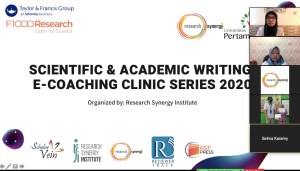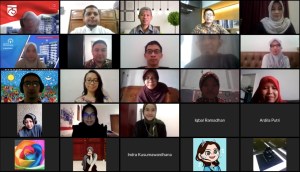
Research Synergy Institute berkolaborasi dengan Forum Manajemen Indonesia Koordinator Wilayah Jawa Timur mempersembahkan Webinar #AskExpert14 : Etnografi Digital: Metode Riset Kontemporer untuk Publikasi di Jurnal Bereputasi SCOPUS/WOS guna memfasilitasi cara menggunakan pendekatan etnografi digital sebagai solusi riset yang efektif, efisien, hemat, dan berkualitas!
Webinar ini dirancang untuk para peneliti dari berbagai bidang mulai dari sosial, kesehatan masyarakat, politik, IT, kajian gender, budaya, lingkungan, dan lainnya yang ingin memahami bagaimana teknologi dan media digital membentuk perilaku, budaya, serta pengalaman masyarakat digital.
👩🏻🎓 Pembicara : Endah Triastuti, Ph.D., Dosen & Peneliti dari Universitas Indonesia
💰 Biaya Pendaftaran: Rp79.000
🗓 Tanggal Webinar: 24 Januari 2025
🔗 Daftar Sekarang: https://utas.to/AskExpert14
Benefit yang didapat:
✅GRATIS 1X Cek Turnitin Paper
✅Voucher Diskon Intensive Class Digital Ethnography 35%
✅Panduan praktis pengolahan data digital dari berbagai platform
✅Pengenalan tools untuk penelitian Digital Ethnography
Jangan sampai kelewatan, tempat terbatas! Daftar sekarang dan tingkatkan wawasan digitalmu!













